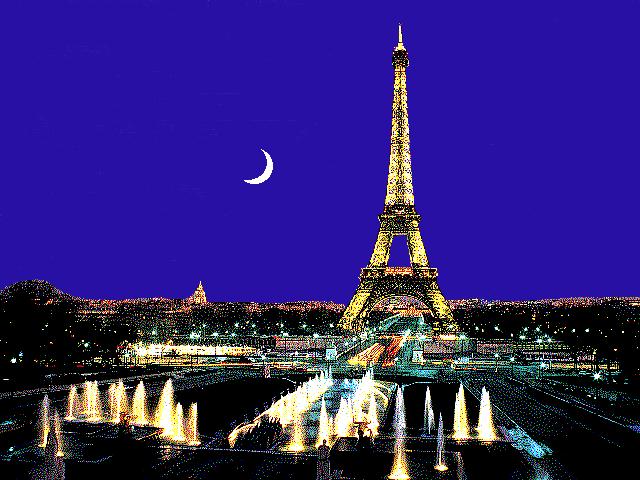Rue de Seine (2)
Labels :
Paris 6,
Rue de Seine
Yesterday I concentrated on the more historical facts around Rue de Seine. What’s happening around this street today?
The first part of the street, closest to the Seine (as well as some surrounding streets) is today full of high class art galleries. You can find and buy works of a number of well known artists – of course not only -, if you have the funds for it. What I would also recommend is that you look to the right and the left and you will find a number of small attractive side streets – and behind some more or less closed gates – some very nice court yards. Many of these are also dedicated to art and art business.
What I would also recommend is that you look to the right and the left and you will find a number of small attractive side streets – and behind some more or less closed gates – some very nice court yards. Many of these are also dedicated to art and art business.  There are a few small hotels and cafés in this part of the street, but you will find more of them, some restaurants and some attractive food shops higher up on the street, the more “modern” part (18th – 19th century). (05)
There are a few small hotels and cafés in this part of the street, but you will find more of them, some restaurants and some attractive food shops higher up on the street, the more “modern” part (18th – 19th century). (05)  You can find some of these pictures on my photo blog.
You can find some of these pictures on my photo blog.
The first part of the street, closest to the Seine (as well as some surrounding streets) is today full of high class art galleries. You can find and buy works of a number of well known artists – of course not only -, if you have the funds for it.
 What I would also recommend is that you look to the right and the left and you will find a number of small attractive side streets – and behind some more or less closed gates – some very nice court yards. Many of these are also dedicated to art and art business.
What I would also recommend is that you look to the right and the left and you will find a number of small attractive side streets – and behind some more or less closed gates – some very nice court yards. Many of these are also dedicated to art and art business.  There are a few small hotels and cafés in this part of the street, but you will find more of them, some restaurants and some attractive food shops higher up on the street, the more “modern” part (18th – 19th century). (05)
There are a few small hotels and cafés in this part of the street, but you will find more of them, some restaurants and some attractive food shops higher up on the street, the more “modern” part (18th – 19th century). (05)  You can find some of these pictures on my photo blog.
You can find some of these pictures on my photo blog.



 Just behind the “Institut”, you will first find two small squares with some statues, including the ones of Voltaire and of Montesquieu.
Just behind the “Institut”, you will first find two small squares with some statues, including the ones of Voltaire and of Montesquieu.  This first part of the street was formerly occupied by some castle like buildings (including for Queen Margot, the first wife of Henry IV). The present buildings are mostly from the 17th century and many of them have been inhabited by - at least in France - well known personalities, like Saint Vincent de Paul, d’Artagnan, Armande Béjart (Molière’s widow), Beaudelaire… For our Polish friends I would like to make a special mention for Adam Mickiewicz who lived here when he published his famous” Pan Tadeusz” (1834).
This first part of the street was formerly occupied by some castle like buildings (including for Queen Margot, the first wife of Henry IV). The present buildings are mostly from the 17th century and many of them have been inhabited by - at least in France - well known personalities, like Saint Vincent de Paul, d’Artagnan, Armande Béjart (Molière’s widow), Beaudelaire… For our Polish friends I would like to make a special mention for Adam Mickiewicz who lived here when he published his famous” Pan Tadeusz” (1834). 










